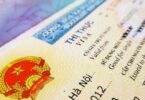With time on your side, renewing a passport is pretty straightforward: fill out a form and send it to a processing center in Philadelphia along with your existing passport, a pair of photographs and a check for $75.
These days, the State Department says it can provide a new passport in “less than four weeks,” though it has been known to take less time, or much more — at times, several months.
But what if your passport has expired and you need one right away because your mother-in-law has fallen ill in Lichtenstein or because you found a last-minute deal on a Mediterranean cruise?
There are two basic options:
The first is to deal directly with the State Department. For $60 on top of the $75 fee and shipping costs, you can apply for expedited service, which currently results in a passport in “less than two weeks,” according to the department’s Bureau of Consular Affairs.
If a fortnight is still too long to wait, you can make an in-person appointment at one of 13 U.S. passport agencies and try to convince the government that you have an “urgent need.” It doesn’t have to be an emergency. An imminent departure, with proof, such as airline tickets or an itinerary, qualifies.
In truly dire situations, a passport agency can turn around the document in about 24 hours.
“If you needed it in a single day — and we’re talking a life-death emergency — we would do everything we could to get you the passport in a single day,” said Steven Royster, a spokesman for the bureau.
The second option is getting someone else to do the work for you — including the visit to the passport agency. This option costs more, of course — commonly between $99 and $200 in addition to government fees and shipping costs. All told, that might bring the cost of a new passport to nearly $400.
The State Department allows most renewal applicants to send a proxy to the passport agency, and this has spawned an industry of professional passport and visa expediters, called “couriers” by the department. Expediters promote their ability to drum up passports (and other travel documents, such as visas) in short order, as quickly as one to three days.
“If you need something same day or next day or a couple of days, that’s when you come to us,” said Robert L. Smith Jr., executive director of the National Association of Passport and Visa Services in Silver Spring, Md.
Many people who aren’t especially pressed for time nonetheless use expediters because they find it more convenient.
The passport services association, which represents 20 of the biggest expediters, says there are about 100 such businesses nationwide. The State Department says nearly 240 companies are registered as expediters but noted that the number could include multiple registrations for some companies. Altogether, expediters handle roughly 1 million passports annually, Smith said.
The government issued more than 18 million passports in 2007, a record number, due to a flood of applications inspired by new rules that took effect last year, including those requiring passports for all air travel in and out of the U.S., including to and from Mexico and Canada.
The State Department says that expediters don’t offer anything the government does not and that expediting companies operate with no special privileges.
But expediters appear to have a major advantage over individual applicants: Once registered with one of the 13 regional passport agencies (there’s one in Norwalk), an expediter receives a specific number of “slots” representing the type and number of passports the company can submit for processing within a specific time frame.
Though an individual can typically make an appointment at a passport office on short notice, there’s no guarantee that one will be available at a convenient time. And people who don’t live near one of the 13 regional passport offices also might not have enough time to travel to one.
“We can get appointments that they wouldn’t have access to at all times,” said Steven Diehl, head of business development for CIBT Inc. of Virginia, the nation’s largest passport and visa expediter.
Royster disputed that the companies have an advantage over regular citizens by virtue of the guaranteed slots, saying, “We do set aside some capacity to deal with drop-in appointments as well.”
CIBT charges $99, in addition to government fees, for passport renewal when the customer can wait more than 10 days. It charges $199 for a one- to three-day turnaround. Smith said $200 is standard for the fastest service.
There are, of course, ways to work the system.
“Call your senator,” said Mary Peters, a travel agent in Alexandria, Va., who is vice president of the American Society of Travel Agents, also in Alexandria.
Or your congressman.
John Siebert, president of Meriden Travel, said he had a client who early this year followed all the rules for renewing his passport by mail, and submitted the paperwork five or six weeks before his travel date. With less than a week until his departure for Italy, the man still hadn’t received his little blue book.
“They cashed his check but there was nothing happening,” Siebert said.
What happened?
“We had the congressman get involved,” said Siebert, referring to Rep. Chris Murphy, D-5th District. “He contacted somebody, and next thing you know, the guy had his passport.”
courant.com






















